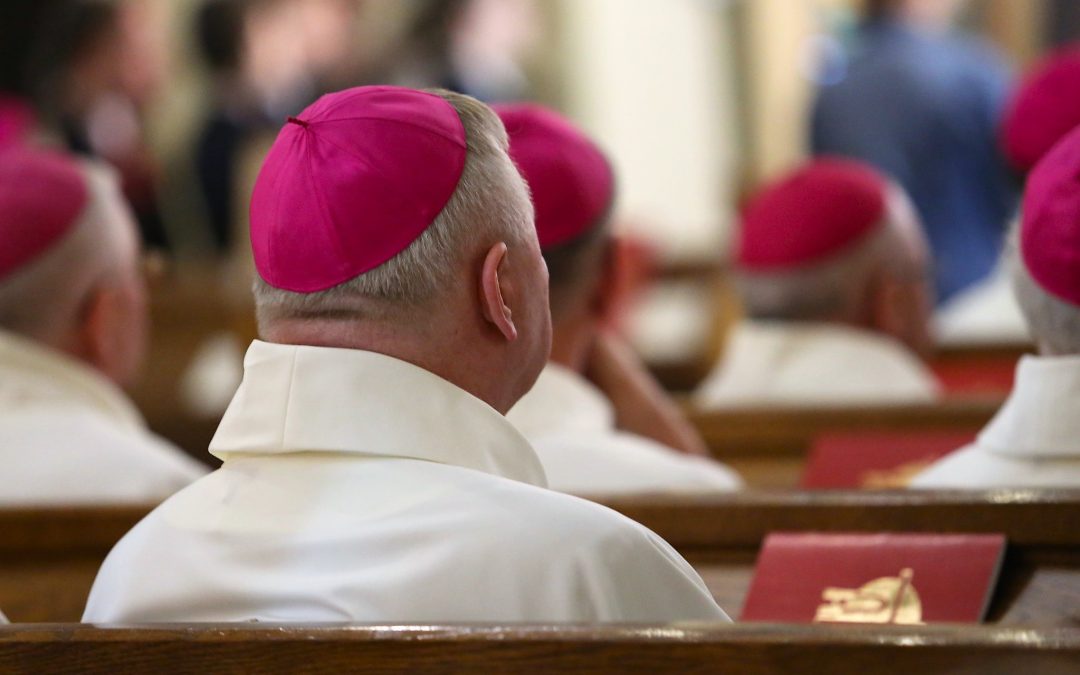The bishop of Świdnica, Marek Mendyk, has been accused of historical sexual abuse of an eight-year-old boy while visiting him in hospital when his family feared he was dying. The claim was made by the alleged victim himself, Andrzej Pogorzelski, now 38 years old and a former seminary student, in an interview with Newsweek Polska.
In response to the publication, Mendyk has issued a statement denying wrongdoing, calling the accusations “lies”, and demanding a public apology. He also announced that he has notified his church supervisors and the Vatican, appealing to them to investigate the case.
The episode is the latest in a series of recent claims of sex abuse by members of Poland’s Catholic clergy and of cover-ups by the church hierarchy. The Vatican has punished a number of current and former Polish bishops for their negligence in dealing with the issue.
Były kleryk Andrzej Pogorzelski w wywiadzie dla „Newsweeka” oskarżył biskupa świdnickiego Marka Mendyka o to, że ten molestował go seksualnie w dzieciństwie. Hierarcha zaprzecza i deklaruje, że to nieprawda i spodziewa się przeprosin.https://t.co/uJLi1DUkU9
— Fakty RMF FM (@RMF24pl) August 8, 2022
Pogorzelski told Newsweek that he had been hospitalised at the age of eight due to complications after suffering mumps. His condition was so bad that his family sent for a priest from the local parish, Mendyk, to give him his last rites.
The child was then left alone with the priest, and Pogorzelski claims that Mendyk “took my hand in his and guided it to my pants. He started touching me”.
“I remember I was ashamed and I hid my head under the pillow,” he said. “He said that now everything will be all right, but I have to be a good boy and keep it all to myself as it can come back…I thought it had to be like this, I was a little child.”
Pogorzelski told Newsweek – which recently appointed as its chief editor Tomasz Sekielski, a journalist and filmmaker renowned for uncovering cases of abuse in the church – that he had never spoken to anyone about being sexually abused by the priest before.
He acknowledged that the statute of limitations for the crime – which for sexual offences against those aged under 15 expires when the victim turns 30 – means that he cannot hold Mendyk legally to account. But he says he is notifying prosecutors anyway in order to take a stand.
In response to the accusations, Mendyk – who has been bishop of Świdnica since 2020 – published a statement on the website of his diocese in which he proclaimed “with full force” that these accusations are “not true.”
The bishop wrote that he “won’t stand for lies [and] slander…to be copied by other media” and informed that he has handed the case over to lawyers. On top of that, he demanded that the man making the accusation, who “may be under the influence of others”, issue a public apology.
In a second statement, the bishop announced that he had appealed to his supervisor – the archbishop of Wrocław – to undertake “actions in accordance with canonic law” aimed at investigating the case.
Mendyk said he had also notified the apostolic nunciature in Poland and declared his readiness to fully cooperate with the church and state authorities.
Last year, the Vatican punished three Polish bishops for their “negligent” response to the sexual abuse of minors by members of the clergy under their authority. One of them, Edward Janiak, was identified in one of Siekielski’s documentaries as having failed to deal with the issue.
In May this year, the diocese of Kalisz, where Janiak had been bishop, was ordered by a court to pay 300,000 zloty (€65,000) to a man who was abused as a child by one of its priests.
However, another senior church figure – Cardinal Stanisław Dziwisz, former personal secretary to Pope John Paul II – was cleared by the Vatican this year of negligence in dealing with sex abuse during his time as archbishop of Kraków.
Main image credit: EpiskopatNews/Flickr (under CC BY-NC-SA 2.0)

Agnieszka Wądołowska is deputy editor-in-chief of Notes from Poland. She is a member of the European Press Prize’s preparatory committee. She was 2022 Fellow at the Entrepreneurial Journalism Creators Program at City University of New York. In 2024, she graduated from the Advanced Leadership Programme for Top Talents at the Center for Leadership. She has previously contributed to Gazeta Wyborcza, Wysokie Obcasy and Duży Format.



















